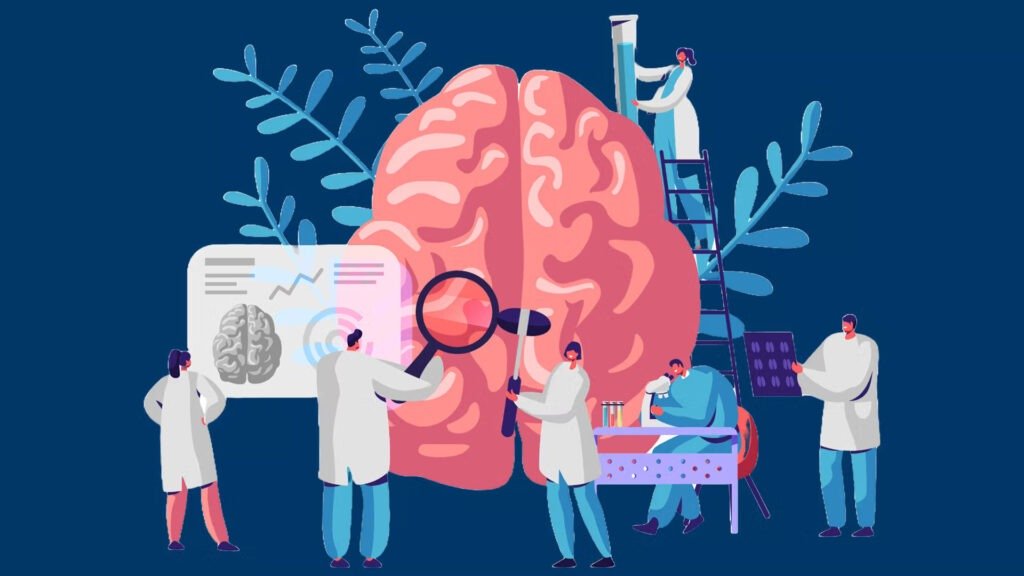The brain is one of the most energy-demanding organs in the human body, consuming nearly 20% of the body’s total energy despite weighing just about 2% of total body mass. It orchestrates our thoughts, memory, emotions, movements, and even the regulation of vital functions like breathing and heartbeat. With such a central role in our well-being, it’s no surprise that nutrition has a profound impact on brain health.
Just as poor diet can lead to chronic diseases like diabetes and heart disease, it can also compromise neurological health, increasing the risk of disorders like Alzheimer’s disease, stroke, cognitive decline, depression, and neuropathy. In this article, Dr. Gautam Arora of NPMC explains the science behind nutrition’s role in brain function and offers practical strategies to nourish your mind.
Why Brain Health Depends on Proper Nutrition
The brain relies on a steady supply of nutrients to function. These nutrients not only fuel the brain but also help build and repair brain tissue, create neurotransmitters, and protect against inflammation and oxidative stress.
Key nutrients like omega-3 fatty acids, B-vitamins, antioxidants, and amino acids play essential roles in:
- Enhancing cognitive performance
- Preventing neurodegeneration
- Supporting mood regulation
- Improving memory and learning
- Repairing damaged neurons
Nutrients That Support Brain Health
Let’s explore some of the most crucial nutrients that act as brain fuel:
1. Omega-3 Fatty Acids
- Found in: Fatty fish (salmon, sardines, mackerel), walnuts, flaxseeds, chia seeds
- Role: Omega-3s, particularly DHA, form the building blocks of brain cells. They enhance communication between neurons and protect against age-related cognitive decline and depression.
2. B Vitamins (B6, B9, B12)
- Found in: Eggs, leafy greens, legumes, whole grains, meat
- Role: B vitamins support energy production and are vital in the synthesis of neurotransmitters like serotonin and dopamine. They also regulate homocysteine levels, high levels of which are linked to cognitive impairment.
3. Antioxidants (Vitamin C, E, and Polyphenols)
- Found in: Berries, dark chocolate, green tea, citrus fruits, spinach
- Role: Antioxidants protect the brain from oxidative stress, which contributes to ageing and neurodegenerative diseases like Alzheimer’s and Parkinson’s.
4. Magnesium
- Found in: Nuts, seeds, leafy greens, avocados
- Role: Magnesium aids in nerve transmission, brain plasticity, and helps reduce stress and anxiety levels.
5. Iron
- Found in: Red meat, beans, spinach, fortified cereals
- Role: Iron deficiency can impair learning and memory. Iron is essential for transporting oxygen to brain cells and producing energy.
6. Protein (Amino Acids)
- Found in: Meat, eggs, dairy, soy, lentils
- Role: Amino acids like tryptophan and tyrosine are precursors to neurotransmitters like serotonin and dopamine.
7. Vitamin D
- Found in: Fortified dairy, egg yolks, sunlight
- Role: Low vitamin D levels are associated with an increased risk of mood disorders, cognitive decline, and MS.
Brain-Boosting Foods to Include in Your Diet
A brain-friendly diet isn’t about perfection, but consistency. Try incorporating these foods regularly:
- Fatty fish: Twice a week for omega-3s
- Berries: Rich in antioxidants to delay brain ageing
- Leafy greens: Spinach, kale, and broccoli support cognition
- Whole grains: Provide steady energy and B vitamins
- Nuts & seeds: Healthy fats and magnesium
- Dark chocolate: Boosts mood and brain function
- Turmeric: Curcumin helps with memory and reduces inflammation
- Green tea: Contains L-theanine and caffeine for alertness and calm focus
Diets That Promote Brain Health
Two dietary patterns have shown promise in promoting neurological health:
1. The Mediterranean Diet
- Emphasises fruits, vegetables, whole grains, legumes, olive oil, and fish.
- Linked to a reduced risk of Alzheimer’s, stroke, and cognitive decline.
2. The MIND Diet
- A combination of the Mediterranean and DASH diets tailored to brain health.
- Focuses on 10 brain-healthy food groups and limits red meat, cheese, sweets, and fried foods.
Lifestyle Tips to Complement a Brain-Healthy Diet
In addition to diet, other lifestyle habits enhance neurological function:
- Stay hydrated: Dehydration can impair concentration and alertness.
- Regular exercise boosts brain plasticity and memory.
- Adequate sleep: Critical for memory consolidation and toxin clearance.
- Stress management: Chronic stress damages neurons; mindfulness and relaxation techniques help.
Nutrition in Neurological Conditions
In individuals already experiencing neurological disorders, nutrition becomes even more critical.
- Parkinson’s Disease: Protein timing can affect medication absorption; fibre and hydration help with constipation.
- Epilepsy: The ketogenic diet (high fat, very low carb) is sometimes used in drug-resistant epilepsy.
- Neuropathy: Deficiencies in B12 or folate can worsen symptoms; proper supplementation is essential.
- Stroke Recovery: A nutrient-dense diet aids in recovery and prevents recurrence.
If you’re managing a neurological condition, it’s crucial to work with a neurologist and nutrition expert to develop a personalised dietary plan.
When to Consult a Specialist
If you’re experiencing:
- Memory lapses
- Brain fog
- Fatigue
- Frequent mood swings
- Tingling or numbness
- Muscle weakness or tremors
…it’s time to speak with a neurologist. At NPMC, Dr. Gautam Arora provides thorough evaluations, diagnostics, and integrates lifestyle and nutritional advice into your care plan. We believe in treating the root cause, not just the symptoms.
Final Thoughts
Your brain is constantly at work—thinking, remembering, moving, and feeling. To keep it in top shape, what you feed it matters. With the right nutrients and dietary habits, you can improve mental clarity, protect against disease, and boost long-term cognitive resilience.
Whether you’re looking to enhance daily brain performance or manage a neurological condition, nourishing your brain is one of the best investments in your future. Let NPMC and Dr. Gautam Arora guide you toward better neurological health—starting with what’s on your plate.









































